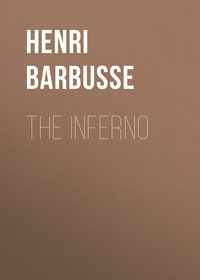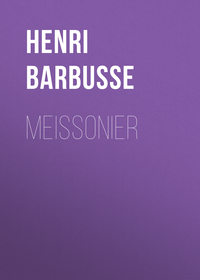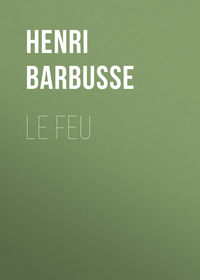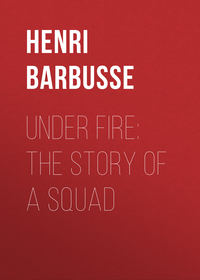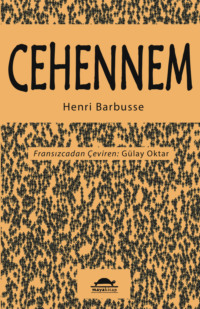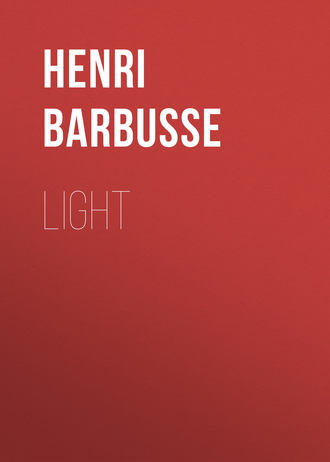 полная версия
полная версияLight
Here is the Kiosk. It is waiting quite alone, with its point in the darkness. Antonia has not come, for she would have waited for me. I am impatient first, and then relieved. A good riddance.
No doubt Antonia is still tempting when she is present. There is a reddish fever in her eyes, and her slenderness sets you on fire. But I am hardly in harmony with the Italian. She is particularly engrossed in her private affairs, with which I am not concerned. Big Victorine, always ready, is worth a hundred of her; or Madame Lacaille, the pensively vicious; though I am equally satiated of her, too. Truth to tell, I plunge unreflectingly into a heap of amorous adventures which I shortly find vulgar. But I can never resist the magic of a first temptation.
I shall not wait. I go away. I skirt the forge of the ignoble Brisbille. It is the last house in that chain of low hills which is the street. Out of the deep dark the smithy window flames with vivid orange behind its black tracery. In the middle of that square-ruled page of light I see transparently outlined the smith's eccentric silhouette, now black and sharp, now softly huge. Spectrally through the glare, and in blundering frenzy, he strives and struggles and fumbles horribly on the anvil. Swaying, he seems to rush to right and to left, like a passenger on a hell-bound ferry. The more drunk he is, the more furiously he falls upon his iron and his fire.
I return home. Just as I am about to enter a timid voice calls me—"Simon!"
It is Antonia. So much the worse for her. I hurry in, followed by the weak appeal.
I go up to my room. It is bare and always cold; always I must shiver some minutes before I shake it back to life. As I close the shutters I see the street again; the massive, slanting blackness of the roofs and their population of chimneys clear-cut against the minor blackness of space; some still waking, milk-white windows; and, at the end of a jagged and gloomy background, the blood-red stumbling apparition of the mad blacksmith. Farther still I can make out in the cavity the cross on the steeple; and again, very high and blazing with light on the hill-top, the castle, a rich crown of masonry. In all directions the eye loses itself among the black ruins which conceal their hosts of men and of women—all so unknown and so like myself.
CHAPTER II
OURSELVES
It is Sunday. Through my open window a living ray of April has made its way into my room. It has transformed the faded flowers of the wallpaper and restored to newness the Turkey-red stuff which covers my dressing-table.
I dress carefully, dallying to look at myself in the glass, closely and farther away, in the fresh scent of soap. I try to make out whether my eyes are little or big. They are the average, no doubt, but it really seems to me that they have a tender brightness.
Then I look outside. It would seem that the town, under its misty blankets in the hollow of the valley, is awaking later than its inhabitants.
These I can see from up here, spreading abroad in the streets, since it is Sunday. One does not recognize them all at once, so changed are they by their unusual clothes;—women, ornate with color, and more monumental than on week days; some old men, slightly straightened for the occasion; and some very lowly people, whom only their cleanness vaguely disguises.
The weak sunshine is dressing the red roofs and the blue roofs and the sidewalks, and the tiny little stone setts all pressed together like pebbles, where polished shoes are shining and squeaking. In that old house at the corner, a house like a round lantern of shadow, gloomy old Eudo is encrusted. It forms a comical blot, as though traced on an old etching. A little further, Madame Piot's house bulges forth, glazed like pottery. By the side of these uncommon dwellings one takes no notice of the others, with their gray walls and shining curtains, although it is of these that the town is made.
Halfway up the hill, which rises from the river bank, and opposite the factory's plateau, appears the white geometry of the castle, and around its pallors a tapestry of reddish foliage, and parks. Farther away, pastures and growing crops which are part of the demesne; farther still, among the stripes and squares of brown earth or verdant, the cemetery, where every year so many stones spring up.
* * * * * *We have to call at Brisbille's, my aunt and I, before Church. We are forced to tolerate him thus, so as to get our twisted key put right. I wait for Mame in the court, sitting on a tub by the shop, which is lifeless to-day, and full of the scattered leavings of toil. Mame is never ready in time. She has twice appeared on the threshold in her fine black dress and velvet cape; then, having forgotten something, she has gone back very quickly, like a mole. Finally, she must needs go up to my room, to cast a last glance over it.
At last we are off, side by side. She takes my arm proudly. From time to time she looks at me, and I at her, and her smile is an affectionate grimace amid the sunshine.
When we have gone a little way, my aunt stops, "You go on," she says; "I'll catch you up."
She has gone up to Apolline, the street-sweeper. The good woman, as broad as she is long, was gaping on the edge of the causeway, her two parallel arms feebly rowing in the air, an exile in the Sabbath idleness, and awkwardly conscious of her absent broom.
Mame brings her along, and looking back as I walk, I hear her talking of me, hastily, as one who confides a choking secret, while Apolline follows, with her arms swinging far from her body, limping and outspread like a crab.
Says Mame, "That boy's bedroom is untidy. And then, too, he uses too many shirt-collars, and he doesn't know how to blow his nose. He stuffs handkerchiefs into his pockets, and you find them again like stones."
"All the same, he's a good young man," stammers the waddling street cleanser, brandishing her broom-bereaved hands at random, and shaking over her swollen and many-storied boots a skirt weighted round the hem by a coat-of-mail of dry mud.
These confidences with which Mame is in the habit of breaking forth before no matter whom get on my nerves. I call her with some impatience. She starts at the command, comes up, and throws me a martyr's glance.
She proceeds with her nose lowered under her black hat with green foliage, hurt that I should thus have summoned her before everybody, and profoundly irritated. So a persevering malice awakens again in the depths of her, and she mutters, very low, "You spat on the window the other day!"
But she cannot resist hooking herself again on to another interlocutor, whose Sunday trousers are planted on the causeway, like two posts, and his blouse as stiff as a lump of iron ore. I leave them, and go alone into Brisbille's.
The smithy hearth befires a workshop which bristles with black objects. In the middle of the dark bodies of implements hanging from walls and ceiling is the metallic Brisbille, with leaden hands, his dark apron rainbowed with file-dust,—dirty on principle, because of his ideas, this being Sunday. He is sober, and his face still unkindled, but he is waiting impatiently for the church-going bell to begin, so that he may go and drink, in complete solitude.
Through an open square, in the ponderous and dirt-shaggy glazing of the smithy, one can see a portion of the street, and a sketch, in bright and airy tones, of scattered people. It is like the sharply cut field of vision in an opera-glass, in which figures are drawn and shaded, and cross each other; where one makes out, at times, a hat bound and befeathered, swaying as it goes; a little boy with sky-blue tie and buttoned boots, and tubular knickers hanging round his thin, bare calves; a couple of gossiping dames in swollen and somber petticoats, who tack hither and thither, meet, are mutually attracted and dissolve in conversation, like rolling drops of ink. In the foreground of this colored cinema which goes by and passes again, Brisbille, the sinister, is ranting away, as always. He is red and lurid, spotted with freckles, his hair greasy, his voice husky. For a moment, while he paces to and fro in his cage, dragging shapeless and gaping shoes behind him, he speaks to me in a low voice, and close to my face, in gusts. Brisbille can shout, but not talk; there must be a definite pressure of anger before his resounding huskiness issues from his throat.
Mame comes in. She sits on a stool to get her breath again, all the while brandishing the twisted key which she clasps to the prayer-book in her hand. Then she unburdens herself and begins to speak in fits and starts of this key, of the mishap which twisted it, and of all the multiple details which overlap each other in her head. But the slipshod, gloomy smith's attention is suddenly attracted by the hole which shows the street.
"The lubber!" he roars.
It is Monsieur Fontan who is passing, the wine-merchant and café-proprietor. He is an expansive and imposing man, fat-covered, and white as a house. He never says anything and is always alone. A great personage he is; he makes money; he has amassed hundreds of thousands of francs. At noon and in the evening he is not to be seen, having dived into the room behind the shop, where he takes his meals in solitude. The rest of the time he just sits at the receipt of custom and says nothing. There is a hole in his counter where he slides the money in. His house is filling with money from morning till night.
"He's a money-trap," says Mame.
"He's rich," I say.
"And when you've said that," jeers Brisbille, "you've said all there is to say. Why, you damned snob, you're only a poor drudge, like all us chaps, but haven't you just got the snob's ideas?"
I make a sign of impatience. It is not true, and Brisbille annoys me with the hatred which he hurls at random, hit or miss; and all the more because he is himself visibly impressed by the approach of this man who is richer than the rest. The rebel opens his steely eye and relapses into silence, like the rest of us, as the big person grows bigger.
"The Bonéas are even richer," my aunt murmurs.
Monsieur Fontan passes the open door, and we can hear the breathing of the corpulent recluse. As soon as he has carried away the enormous overcoat that sheathes him, like the hide of a pachyderm, and is disappearing, Brisbille begins to roar, "What a snout! Did you see it, eh? Did you see the jaws he swings from his ears, eh? The exact likeness of a hog!"
Then he adds, in a burst of vulgar delight, "Luckily, we can expect it'll all burst before long!"
He laughs alone. Mame goes and sits apart. She detests Brisbille, who is the personification of envy, malice and coarseness. And everybody hates this marionette, too, for his drunkenness and his forward notions. All the same, when there is something you want him to do, you choose Sunday morning to call, and you linger there, knowing that you will meet others. This has become a tradition.
"They're going to cure little Antoinette," says Benoît, as he frames himself in the doorway.
Benoît is like a newspaper. He to whom nothing ever happens only lives to announce what is happening to others.
"I know," cries Mame, "they told me so this morning. Several people already knew it this morning at seven. A big, famous doctor's coming to the castle itself, for the hunting, and he only treats just the eyes."
"Poor little angel!" sighs a woman, who has just come in.
Brisbille intervenes, rancorous and quarrelsome, "Yes, they're always going to cure the child, so they say. Bad luck to them! Who cares about her?"
"Everybody does!" reply two incensed women, in the same breath.
"And meanwhile," said Brisbille, viciously, "she's snuffing it." And he chews, once more, his customary saying—pompous and foolish as the catchword of a public meeting—"She's a victim of society!"
Monsieur Joseph Bonéas has come into Brisbille's, and he does it complacently, for he is not above mixing with the people of the neighborhood. Here, too, are Monsieur Pocard, and Crillon, new shaved, his polished skin taut and shiny, and several other people. Prominent among them one marks the wavering head of Monsieur Mielvaque, who, in his timidity and careful respect for custom, took his hat off as he crossed the threshold. He is only a copying-clerk at the factory; he wears much-used and dubious linen, and a frail and orphaned jacket which he dons for all occasions.
Monsieur Joseph Bonéas overawes me. My eyes are attracted by his delicate profile, the dull gloom of his morning attire, and the luster of his black gloves, which are holding a little black rectangle, gilt-edged.
He, too, has removed his hat. So I, in my corner discreetly remove mine, too.
He is a young man, refined and distinguished, who impresses by his innate elegance. Yet he is an invalid, tormented by abscesses. One never sees him but his neck is swollen, or his wrists enlarged by a ghastly outcrop. But the sickly body encloses bright and sane intelligence. I admire him because he is thoughtful and full of ideas, and can express himself faultlessly. Recently he gave me a lesson in sociology, touching the links between the France of to-day and the France of tradition, a lesson on our origins whose plain perspicuity was a revelation to me. I seek his company; I strive to imitate him, and certainly he is not aware how much influence he has over me.
All are attentive while he says that he is thinking of organizing a young people's association in Viviers. Then he speaks to me, "The farther I go the more I perceive that all men are afflicted with short sight. They do not see, nor can they see, beyond the end of their noses."
"Yes," say I.
My reply seems rather scanty, and the silence which follows repeats it mercilessly. It seems so to him, too, no doubt, for he engages other interlocutors, and I feel myself redden in the darkness of Brisbille's cavern.
Crillon is arguing with Brisbille on the matter of the recent renovation of an old hat, which they keep handing to each other and examine ardently. Crillon is sitting, but he keeps his eyes on it. Heart and soul he applies himself to the debate. His humble trade as a botcher does not allow a fixed tariff, and he is all alone as he vindicates the value of his work. With his fists he hammers the gray-striped mealy cloth on his knees, and the hair, which grows thickly round his big neck, gives him the nape of a wild boar.
"That felt," he complains, "I'll tell you what was the matter with it. It was rain, heavy rain, that had drowned it. That felt, I tells you, was only like a dirty handkerchief. What does that represent—in ebullition of steam, in gumming, and the passage of time?"
Monsieur Justin Pocard is talking to three companions, who, hat in hand, are listening with all their ears. He is entertaining them in his sonorous language about the great financial and industrial combination which he has planned. A speculative thrill electrifies the company.
"That'll brush business up!" says Crillon, in wonder, torn for a moment from contemplation of the hat, but promptly relapsing on it.
Joseph Bonéas says to me, in an undertone,—and I am flattered,—"That Pocard is a man of no education, but he has practical sense. That's a big idea he's got,—at least if he sees things as I see them."
And I, I am thinking that if I were older or more influential in the district, perhaps I should be in the Pocard scheme, which is taking shape, and will be huge.
Meanwhile, Brisbille is scowling. An unconfessable disquiet is accumulating in his bosom. All this gathering is detaining him at home, and he is tormented by the desire for drink. He cannot conceal his vinous longing, and squints darkly at the assembly. On a week day at this hour he would already have begun to slake his thirst. He is parched, he burns, he drags himself from group to group. The wait is longer than he can stand.
Suddenly every one looks out to the street through the still open door.
A carriage is making its way towards the church; it has a green body and silver lamps. The old coachman, whose great glove sways the slender scepter of a whip, is so adorned with overlapping capes that he suggests several men on the top of each other. The black horse is prancing.
"He shines like a piano," says Benoît.
The Baroness is in the carriage. The blinds are drawn, so she cannot be seen, but every one salutes the carriage.
"All slaves!" mumbles Brisbille. "Look at yourselves now, just look! All the lot of you, as soon as a rich old woman goes by, there you are, poking your noses into the ground, showing your bald heads, and growing humpbacked."
"She does good," protests one of the gathering.
"Good? Ah, yes, indeed!" gurgles the evil man, writhing as though in the grip of some one; "I call it ostentation—that's what I call it."
Shoulders are shrugged, and Monsieur Joseph Bonéas, always self-controlled, smiles.
Encouraged by that smile, I say, "There have always been rich people, and there must be."
"Of course," trumpets Crillon, "that's one of the established thoughts that you find in your head when you fish for 'em. But mark what I says,—there's some that dies of envy. I'm not one of them that dies of envy."
Monsieur Mielvaque has put his hat back on his petrified head and gone to the door. Monsieur Joseph Bonéas, also, turns his back and goes away.
All at once Crillon cries, "There's Pétrarque!" and darts outside on the track of a big body, which, having seen him, opens its long pair of compasses and escapes obliquely.
"And to think," says Brisbille, with a horrible grimace, when Crillon has disappeared, "that the scamp is a town councilor! Ah, by God!"
He foams, as a wave of anger runs through him, swaying on his feet, and gaping at the ground. Between his fingers there is a shapeless cigarette, damp and shaggy, which he rolls in all directions, patching up and resticking it unceasingly.
Charged with snarls and bristling with shoulder-shrugs, the smith rushes at his fire and pulls the bellows-chain, his yawning shoes making him limp like Vulcan. At each pull the bellows send spouting from the dust-filled throat of the furnace a cutting blue comet, lined with crackling and dazzling white, and therein the man forges.
Purpling as his agitation rises, nailed to his imprisoning corner, alone of his kind, a rebel against all the immensity of things, the man forges.
* * * * * *The church bell rang, and we left him there. When I was leaving I heard Brisbille growl. No doubt I got my quietus as well. But what can he have imagined against me?
We meet again, all mixed together in the Place de l'Eglise. In our part of the town, except for a clan of workers whom one keeps one's eye on, every one goes to church, men as well as women, as a matter of propriety, out of gratitude to employers or lords of the manor, or by religious conviction. Two streets open into the Place and two roads, bordered with apple-trees, as well, so that these four ways lead town and country to the Place.
It has the shape of a heart, and is delightful. It is shaded by a very old tree, under which justice was formerly administered. That is why they call it the Great Tree, although there are greater ones. In winter it is dark, like a perforated umbrella. In summer it gives the bright green shadow of a parasol. Beside the tree a tall crucifix dwells in the Place forever.
The Place is swarming and undulating. Peasants from the surrounding country, in their plain cotton caps, are waiting in the old corner of the Rue Neuve, heaped together like eggs. These people are loaded with provisions. At the farther end, square-paved, one picks out swarthy outlines of the Epinal type, and faces as brightly colored as apples. Groups of children flutter and chirrup; little girls with their dolls play at being mothers, and little boys play at brigands. Respectable people take their stand more ceremoniously than the common crowd, and talk business piously.
Farther away is the road, which April's illumination adorns all along the lines of trees with embroidery of shadow and of gold, where bicycles tinkle and carriages rumble echoingly; and the shining river,—those long-drawn sheets of water, whereon the sun spreads sheets of light and scatters blinding points. Looking along the road, on either side of its stone-hard surface, one sees the pleasant, cultivated earth, the bits of land sewn to each other, and many-hued, brown or green as the billiard cloth, then paling in the distance. Here and there, on this map in colors, copses bulge forth. The by-roads are pricked out with trees, which follow each other artlessly and divide the infantile littleness of orchards.
This landscape holds us by the soul. It is a watercolor now (for it rained a little last night), with its washed stones, its tiles varnished anew, its roofs that are half slate and half light, its shining pavements, water-jeweled in places, its delicately blue sky, with clouds like silky paper; and between two house-fronts of yellow ocher and tan, against the purple velvet of distant forests, there is the neighboring steeple, which is like ours and yet different. Roundly one's gaze embraces all the panorama, which is delightful as the rainbow.
From the Place, then, where one feels himself so abundantly at home, we enter the church. From the depths of this thicket of lights, the good priest murmurs the great infinite speech to us, blesses us, embraces us severally and altogether, like father and mother both. In the manorial pew, the foremost of all, one glimpses the Marquis of Monthyon, who has the air of an officer, and his mother-in-law, Baroness Grille, who is dressed like an ordinary lady.
Emerging from church, the men go away; the women swarm out more grudgingly and come to a standstill together; then all the buzzing groups scatter.
At noon the shops close. The fine ones do it unassisted; the others close by the antics of some good man who exerts himself to carry and fit the shutters. Then there is a great void.
After lunch I wander in the streets. In the house I am bored, and yet outside I do not know what to do. I have no friend and no calls to pay. I am already too big to mingle with some, and too little yet to associate with others. The cafés and licensed shops hum, jingle and smoke already. I do not go to cafés, on principle, and because of that fondness for spending nothing, which my aunt has impressed on me. So, aimless, I walk through the deserted streets, which at every corner yawn before my feet. The hours strike and I have the impression that they are useless, that one will do nothing with them.
I steer in the direction of the fine gardens which slope towards the river. A little enviously I look over the walls at the tops of these opulent enclosures, at the tips of those great branches where still clings the soiled, out-of-fashion finery of last summer.
Far from there, and a good while after, I encounter Tudor, the clerk at the Modern Pharmacy. He hesitates and doubts, and does not know where to go. Every Sunday he wears the same collar, with turned down corners, and it is becoming gloomy. Arrived where I am, he stops, as though it occurred to him that nothing was pushing him forward. A half-extinguished cigarette vegetates in his mouth.
He comes with me, and I take his silence in tow as far as the avenue of plane trees. There are several figures outspaced in its level peace. Some young girls attract my attention; they appear against the dullness of house-fronts and against shop fronts in mourning. Some of the charming ones are accompanied by their mothers, who look like caricatures of them.
Tudor has left me without my noticing it.
Already, and slowly everywhere, the taverns begin to shine and cry out. In the grayness of twilight one discerns a dark and mighty crowd, gliding therein. In them gathers a sort of darkling storm, and flashes emerge from them.
* * * * * *And lo! Now the night approaches to soften the stony streets.
Along the riverside, to which I have gone down alone, listless idylls dimly appear,—shapes sketched in crayon, which seek and join each other. There are couples that appear and vanish, strictly avoiding the little light that is left. Night is wiping out colors and features and names from both sorts of strollers.
I notice a woman who waits, standing on the river bank. Her silhouette has pearly-gray sky behind it, so that she seems to support the darkness. I wonder what her name may be, but only discover the beauty of her feminine stillness. Not far from that consummate caryatid, among the black columns of the tall trees laid against the lave of the blue, and beneath their cloudy branches, there are mystic enlacements which move to and fro; and hardly can one distinguish the two halves of which they are made, for the temple of night is enclosing them.


